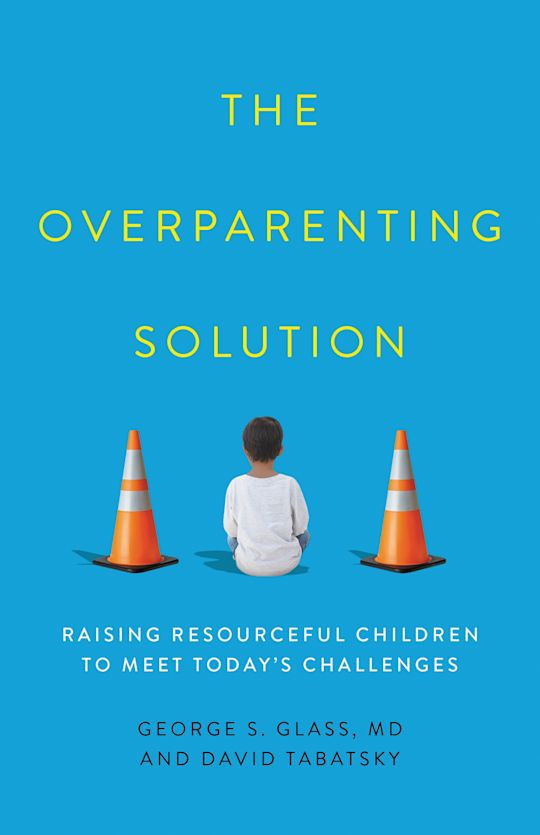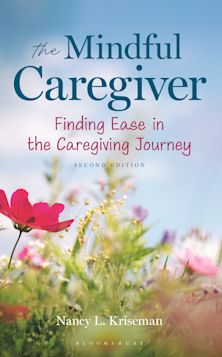- Home
- NON-FICTION
- Health & Lifestyle
- Parenthood & Family
- The Overparenting Solution
The Overparenting Solution
Raising Resourceful Children to Meet Today's Challenges
The Overparenting Solution
Raising Resourceful Children to Meet Today's Challenges
You must sign in to add this item to your wishlist. Please sign in or create an account
Description
Features pragmatic, reasonable advice for how parents can raise their children effectively and lovingly without overdoing it.
Today, in the world of Covid-19, parents may be more anxious than ever as they aim to make sense of the changing landscape of education. We see now that within the context of social distancing, which we may be facing for quite some time, families are experiencing a mix of positive and negative influences, including new stressors, which cause division and even danger, while at the same time, some families are discovering novel ways of remaining blended together. Regardless, families must find their way forward to overcome bad decisions and embrace these challenging circumstances.
The generational desire of parents to want their children to have more opportunity and success than they did has become outdated for many families, especially those of means, but this has not stopped parents from going too far with their children, from pushing them into needless high-pressure situations to protecting them from any possible failure or disappointment. While we know that it is getting harder and harder to get into a select college, and after graduation, it is often more difficult to find a “prestigious” job, parents are not doing their kids any favors by resorting to any means necessary to ensure what they define as their offspring’s success. This work shows readers how to parent better, not more, allowing children to make their own mistakes and learn from them, and grow into functioning, self-reliant adults.
Table of Contents
Introduction: What Is Overparenting and Why Is It a Problem?
Chapter 1: Check Yourself: A Personal Parenting Assessment
Chapter 2: The Evolution of Parenting
Chapter 3: Handle with Care
Chapter 4: Managing Sports and Extra Curriculars
Chapter 5: Welcome to iParenting
Chapter 6: The Negative Consequences of Overparenting
Chapter 7: Being Mindful and Letting Go
Chapter 8: Covid-19 and Parenting During a Crisis
Chapter 9: A Prescription for Healthy Parenting
Notes
Index
About the Authors
Product details
| Published | Oct 29 2021 |
|---|---|
| Format | Ebook (PDF) |
| Edition | 1st |
| Extent | 232 |
| ISBN | 9798765177136 |
| Imprint | Rowman & Littlefield |
| Publisher | Bloomsbury Publishing |
About the contributors
Reviews
-
In this examination of helicopter-parenting, readers learn that one in four parents believes they are the biggest barrier to their children’s independence, and that a study in Beijing posited that overparenting has a detrimental effect on children’s leadership skills, emotional well-being, decision making, and academic performance. Another shows a historical upward trend in the average amount of time modern parents and children spend together; psychiatrist Glass finds that much of this time is now spent on coordinating extracurricular activities or preparing college applications. Here he and Tabatsky analyze parental types (the Protector, the Intervener, the Controller, the Negotiator, the Best-Friender) and share tactics for modeling independence, leadership skills, and decision making. Solid ideas for moving away from overparenting.
Library Journal
-
This empathetic and easygoing consideration of contemporary parenting styles offers concerned readers definitions, examples, self-checks, and explanations of why some parental units hover, control, and try to dictate their kids’ lives. Psychiatrist Glass and writer and editor Tabatsky take the benign approach that all parents mean well, but don’t understand the damage they do when they coddle and intervene, over-schedule, force expectations, demand perfection, or treat their offspring like possessions in some kind of a competition. They use anecdotes to expose various patterns of behavior, hoping to let parents see themselves and their questionable tactics, and acknowledge the fears and insecurities that might prompt these kinds of behaviors. The overall tone is reassuring and upbeat, and repeated admonitions include assurances that no parents really know what they’re doing, and that parents should truly listen to their kids to find out what they want. Filled with practical advice and actionable solutions, this book offers solid guidance to parents who need a little support.
Booklist
-
The Overparenting Solution is full of insight and understanding. Glass and Tabatsky offer great first-hand advice and the selected episodes Dr. Glass shares from his practice are especially poignant. Readers can draw comfort from reading about others who have lived through similar confusing life passages. There is no psychobabble here. Parents today need a sharp and thoughtful wake-up call about raising kids in a changing environment.
Anandhi Narasimhan, MD, family psychiatrist, Los Angeles, CA
-
Glass and Tabatsky have written a “how to” book to help parents navigate this difficult and wonderful thing called parenting. Since they have both “been there and done that,” they speak with authority and offer professional and personal insight, which makes the book appealing and helpful. Here are two people who have learned how to parent!
Mark Banschick, family psychiatrist, Katonah, New York
-
We are required to demonstrate skills, even mastery, and earn a license before being allowed to do most things considered important—but not being a parent, perhaps the most important and complex job of all. In The Overparenting Solution, Glass and Tabatsky provide a road map to guide parents, with advice based on expert opinion, stories, and experience caring for patients and families. Describing different parenting styles and outlining the pitfalls of overparenting, the authors support parents to do what is in the best interest of their children, helping them grow up to be confident, independent, and resilient, able to weather inevitable challenges as well as the joys of life. The book presents a compelling argument for formal training in parenting. This role is too important to leave to chance.
Barbara J. Stoll, MD, dean emeritus, McGovern Medical School, University of Texas Health Sciences Center, Houston
-
I have been a family law specialist for more than 50 years. I have seen a dramatic increase in the kinds of problems that “overparenting” creates. It makes for unhappy, unsuccessful, and often troubled children. This results in children failing to thrive, as they would in a normal family environment. Again, and again, I have witnessed the truism that a parent is only as happy as their unhappiest child, which is often the result of overparenting. Dr. Glass not only details how the process has developed; he also provides reasonable approaches to prevent negative outcomes for the entire family. I will recommend this book to many of my clients.
Earle S. Lilly, founding president, Texas Academy of Family Law Specialists, past president, Gulf Coast Family Law Specialists

ONLINE RESOURCES
Bloomsbury Collections
This book is available on Bloomsbury Collections where your library has access.



































